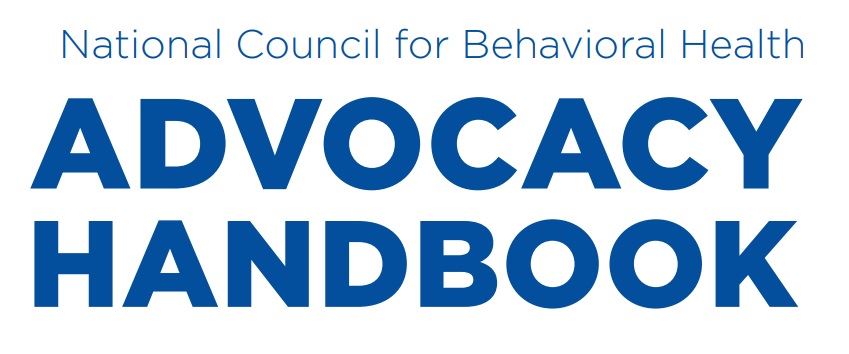Counselors - Peers - Marriage and Family Therapists - Addiction Counselors
Psychologists - Social Workers - Pre-licensure Professionals - Interns
...for a diverse, competent, and sustainable behavioral healthcare workforce.

National Council's handbook has a federal focus, however there are lots of useful general tips here for working with the state legislature.
Everyday Advocacy Guidepost
By APA Chief Advocacy Officer Katherine B. McGuire, MSc, KMcGuire@apa.org
Motivating policymakers to take action on important social and health issues can be a challenging task. Here are several ways in which psychological science can be used to motivate policymakers:
-
Appeal to emotions: By appealing to policymakers' emotions, such as empathy or compassion, you can increase their motivation to take action on social and health issues. For example, by highlighting the personal stories of individuals affected by a particular issue, policymakers may be more inclined to take action.
-
Highlight the costs of inaction: By using psychological principles such as loss aversion, you can emphasize the negative consequences of not taking action on a particular issue. For example, by highlighting the economic costs of untreated mental illness or the social costs of racial inequality, policymakers may be more motivated to take action.
-
Frame the issue in a way that resonates with policymakers: This can be an effective way to motivate action. For example, if a policymaker values individual freedom, framing an issue in terms of personal autonomy may be more effective than framing it in terms of societal benefits.
-
Use social norms: By emphasizing that a particular behavior is a social norm, policymakers may be more likely to adopt that behavior themselves or encourage others to do so. For example, by highlighting that many states have implemented policies to address school-based mental health strategies, policymakers may be more motivated to take similar action in their own backyard.
Using psychological science to motivate policymakers requires a deep understanding of their values, beliefs, and decision-making processes. By tailoring your message to resonate with policymakers and using psychological principles to appeal to their emotions and motivations, you can increase the likelihood that they will take action on important issues.
